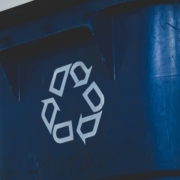La tercera vacuna trae esperanza
 By NCL Director of Health Policy Jeanette Contreras
By NCL Director of Health Policy Jeanette Contreras
La Administración de Alimentos y Medicamentos de los EE. UU. (FDA, por sus siglas en inglés) acaba de aprobar una autorización de uso de emergencia para la vacuna de Johnson & Johnson, la tercera vacuna para combatir el coronavirus en EEUU. Aunque parece que no es tan efectiva como las otras dos, la vacuna de Johnson & Johnson ofrece una protección de 85 por ciento contra casos severos de COVID-19 y 100 por ciento de eficacia para evitar hospitalización y mortalidad, a causa del COVID-19. Con solo una dosis, esta vacuna ofrece protección de 72 por ciento contra el COVID-19 que ultimadamente ayuda controlar la pandemia en la población y alcanzar un nivel de inmunidad necesaria para regresar a la vida normal.
Una ventaja enorme de esta vacuna en términos de administración, es que se puede mantener en refrigeración normal por meses. Las otras vacunas requieren mantenimiento de temperatura súper baja en refrigeradores industriales que solo se encuentran en hospitales grandes. La vacuna de Johnson & Johnson es ideal para distribuir a comunidades rurales y en clínicas comunitarias. La aprobación de esta tercera vacuna, aumenta la disponibilidad y nos da esperanza de poder vacunar a más personas, más rápido con solo una dosis.
Sabemos que la comunidad Latina sufre de una taza de contagio más alta que otros grupos. Latinos constituyen una gran cantidad de empleados en trabajos esenciales con alto riesgo de contagio, como en la producción de comida y en puestos de trabajo de pequeños negocios. Mientras muchos esperan vacunarse, otros tendrán dudas o miedo de vacunarse. La campaña *De Ti Depende nos asegura que es normal tener preguntas y ofrece información y respuestas en español para educar a la comunidad latina.
Campañas educativas como esta son necesaria para combatir información falsa y mitos que circulan en las redes sociales. Se escuchan mitos que las vacunas en general hacen daño o que alteran o cambian el ADN. Sin embargo, está comprobado científicamente por siglos que las vacunas han salvado vidas y nos han protegido. Los Centros para el Control y la Prevención de Enfermedades (CDC, por sus siglas en inglés) tiene *una página dedicada a información para derribar los mitos más frecuentes acerca de estas vacunas.
Para alentar a la población a vacunarse, muchas empresas grandes están ofreciendo tiempo pagado o incentivos financieros a los empleados que se vacunan. Por ejemplo, supermercados como Publix les da $125 y Kroger les da $100 a empleados cuando reciben la vacuna completa. Dollar General les aumenta cuatro horas de pago normal a los que se vacunan.
Gracias a la autorización de la nueva vacuna, presidente Biden afirma que para el fin de mayo habrá vacunas para todos los adultos en EEUU. Las personas que deciden vacunarse, pueden buscar información confiable en el recurso de Telemundo – PlanificaTuVacuna.com para verificar la elegibilidad de acuerdo a las órdenes de cada estado.
*Links are no longer active as the original sources have removed the content, sometimes due to federal website changes or restructurings
















